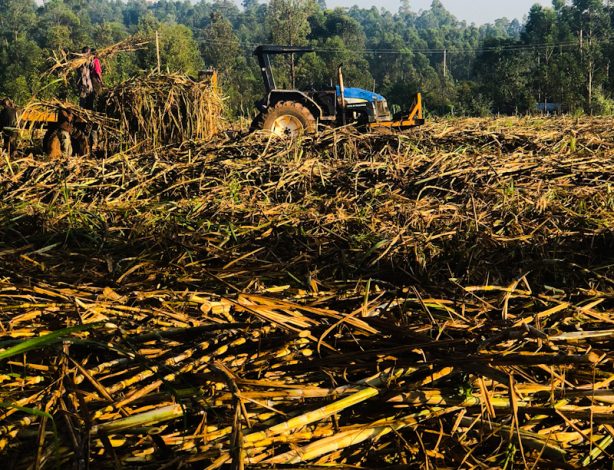Agriculture and Food Authority (AFA) recommends suspending sugar imports to address oversupply.
The Kenyan government is planning to export surplus sugar as local production has outpaced consumption.
According to the AFA, sugar production has surged to 84,000 metric tonnes per month, exceeding domestic consumption of 80,000 metric tonnes.
This oversupply has led to a significant drop in ex-factory sugar prices, from KSh9,000 to KSh5,200 per tonne in the past year.
Consequently, sugarcane prices have also plummeted, impacting farmers’ incomes. The director of the Sugar Directorate Jude Chesire released a new cane price of KSh4,950 per tonne for August, down from the previous KSh5,500 per tonne.
However, the decision to reduce sugarcane prices has ignited a fierce backlash from both millers and farmers.
The Kenya Sugar Manufacturers Association (KESMA) has opposed the new cane price, arguing that it is unjustifiably high and threatens the viability of sugar mills.
KESMA insists that a fair price should be between Sh4,600 and Sh4,800 per ton, citing declining sugar prices.
Farmers, represented by the Kenya Association of Sugarcane and Allied Products (KASAP), are also dissatisfied with the price reduction. They attribute the drop in sugar prices to increased illegal imports and argue that the current cane price is below the cost of production.
“It is perplexing that such price adjustments are being taken despite a court order mandating millers to pay Sh5,950 per ton they receive from farmers and banning questionable imports. The government’s pricing decisions are deeply unjust, leaving farmers desperate and millers increasingly profitable,” Simon Wesechere, Secretary-General of the Kenya National Federation of Sugarcane Farmers says.
Government Seeks to Balance Sugar Surplus with Exports
To stabilize the market, the government plans to suspend sugar imports from the Common Market for Eastern and Southern Africa (COMESA) and explore export opportunities. However, legislative changes are required before exports can commence.
In November 2023, Kenya was granted a two-year extension of its safeguard by COMESA. This safeguard mechanism has been in effect since 2002.
A report by the USDA Foreign Agricultural Service dated April, Kenya’s sugar production is expected to increase by 40 per cent in marketing year (MY) 2024/25 to 750,000 metric tons (MT) due to an increase in area harvested after the expiration of a ban.
With increased domestic production, sugar imports are projected to decline by 30 per cent to 455,000 MT in MY 2024/25.




